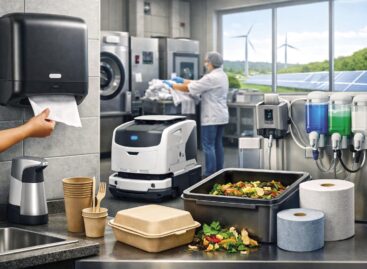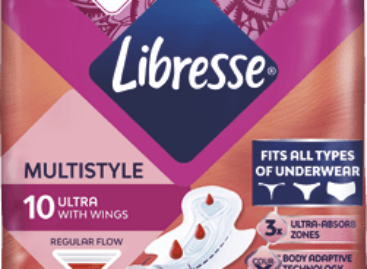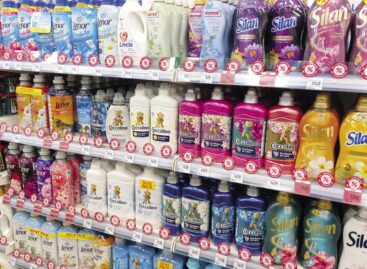Intimate hygiene: no compromises

Eszter Hegedűs
senior brand manager
Essity Hungary
Eszter Hegedűs, senior brand manager of Essity Hungary Kft. told our magazine that both value and volume sales grew in the intimate hygiene category, in the first nine months of the year.
“Growing prices contributed to the sales growth more than the increase in the number of products sold. Essity’s Libresse and TENA Lady products performed above the market average” – informed the senior brand manager.
She also called attention to the fact that now that the pandemic is over, the intimate hygiene market seems to be returning to its pre-Covid state. As women are spending more time away from home, sales of pantyliners and tampons are growing.
Tampons gather momentum

Marietta Varga
brand & shopper
activation manager
Johnson & Johnson
Marietta Varga, junior brand and shopper activation manager of Johnson & Johnson spoke to Trade magazin about tampon sales developing the fastest in the intimate hygiene category.
“Changing consumption trends have also had a positive influence on tampon sales, as market data indicate that more and more women check the per piece price, choosing larger-sized products that give bigger value for money.”
Yvette Krubl, Procter&Gamble’s corporate communications manager in Central and Eastern Europe: “Convenient shopping is still a priority, so specialist shops, drugstores, discount supermarkets and retail outlets located close to where consumers live generate the biggest sales. Their large selection of products makes specialist shops very popular.”
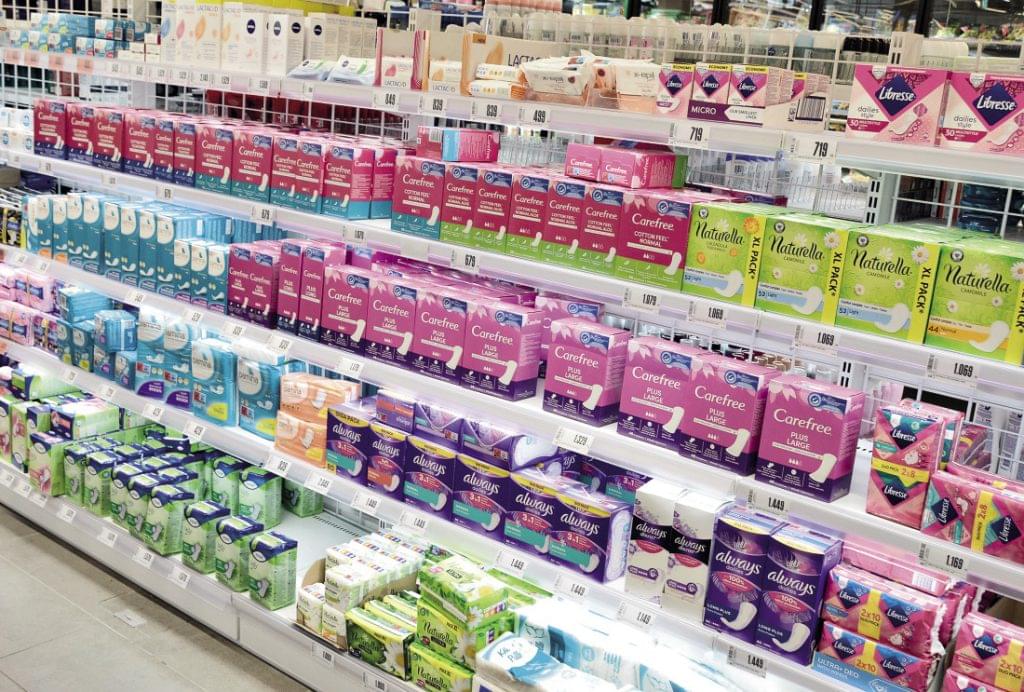
With out-of-home activities intensifying, the panty liner and tampon segments have gained momentum again
Reliability matters more than price
Marietta Varga told: their o.b. Organic product range is hypoallergenic, and none of the o.b. tampons contain harmful chemicals, chlorine-based bleach or fragrance. Every box is 100% recyclable and only plant-based inks are used to print on the boxes. In the pantyliner segment Johnson & Johnson rolled out their first Carefree Organic products a few weeks ago.

Yvette Krubl
corporate communications manager CEE
Procter&Gamble
Yvette Krubl explained that reliability is the number one factor when women are buying intimate hygiene products. She told that Always thick pads are very popular, just like Tampax tampons, and Procter&Gamble’s Naturella and Discreet products. The company’s Always 100% cotton and Tampax 100% cotton products target sustainability-conscious consumers.
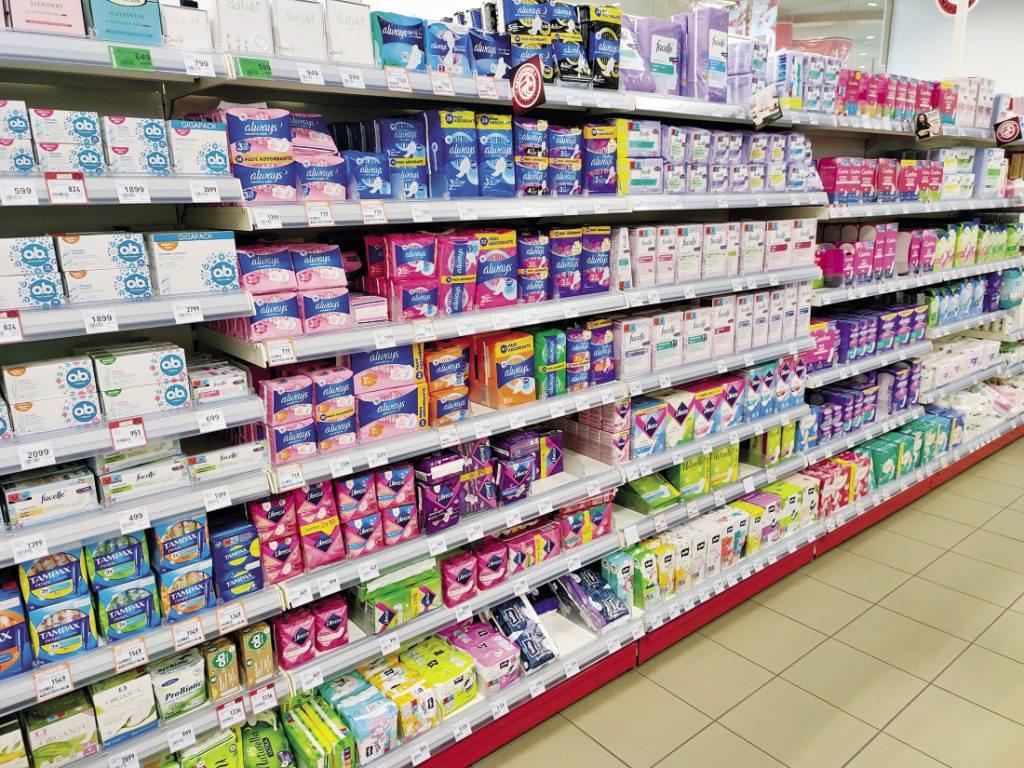
The wide range of products makes the drugstore channel really attractive for customers
Alternatives

Izabella Kowalska
category manager
Essity Hungary
Izabella Kowalska, category manager of Essity Hungary Kft. called our attention to the appearance of sustainable and eco-friendly alternative products in the market, e.g. washable absorbent underwear.
“In the sanitary pad category our night pads are very popular, while from our pantyliners demand is the biggest for those with an absorbent core, especially Multistyle products, which can be adapted to several types of underwear” – told the category manager.
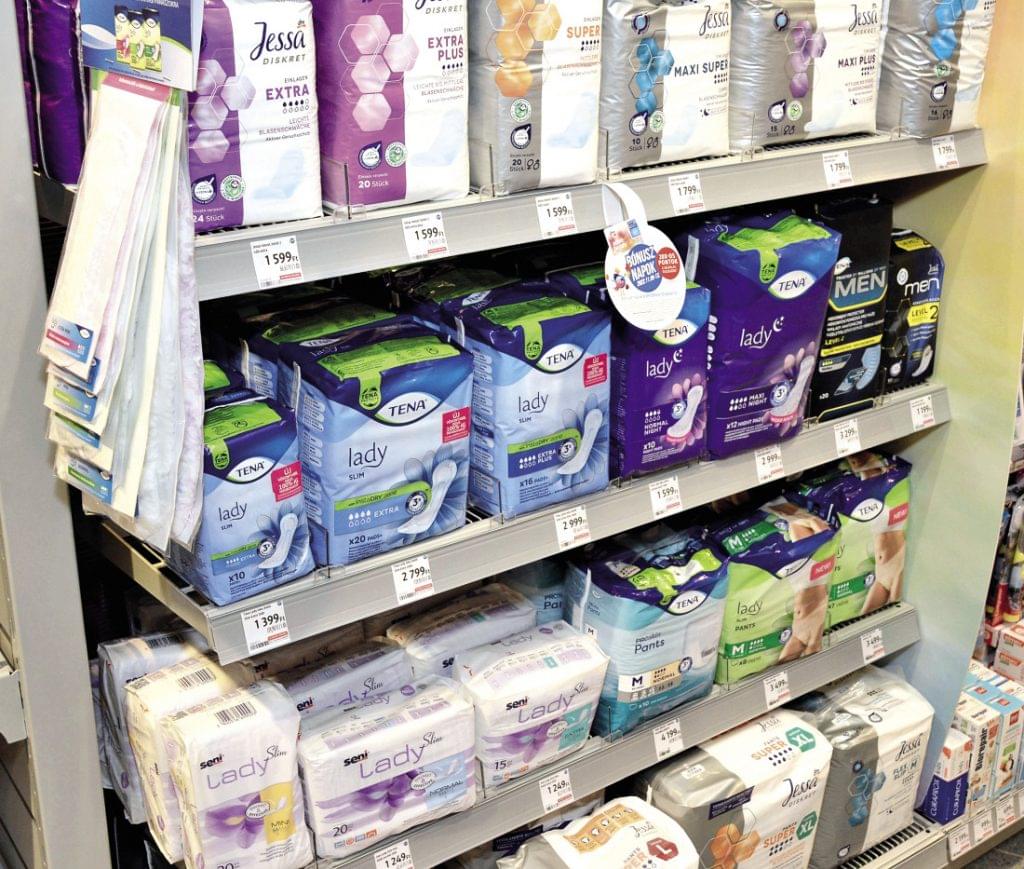
More and more customers tend to pay attention to unit price and choose larger packs of products
//
Two categories where one third of sales isn’t realised by discounters
Feminine hygiene isn’t one of the biggest product categories. This is a segment that hasn’t been conquered by discount supermarkets yet, as drugstores are holding on to their positions, for instance they realised 51% of tampon sales in 2022.


Guest writer:
Krisztina Bodnár
business development
manager
GfK HáztartásPanel
In general we can say that feminine hygiene products aren’t typically purchased in discount supermarkets, primarily because of what their product selection is like. It is also true for the feminine hygiene category that branded products have remained strong. In the tampon and sanitary pad segments 80% of products sold are branded.
Analysing the demography of buyers, what we see is that the penetration of feminine hygiene products is significantly lower in the lowest-income households. Today, when inflation is growing fast, it can be useful to know whether households plan to cut spending on feminine hygiene products too. Well, according to research results from GfK from May, back then consumers didn’t intend to spend less on these products. //
This article is available for reading in Trade magazin 2022.12-01.
Related news
Hygiene on new foundations
🎧 Hallgasd a cikket: Lejátszás Szünet Folytatás Leállítás Nyelv: Auto…
Read more >Related news
Tourism Business Index: improving sentiment, but the sector remains in the red
🎧 Hallgasd a cikket: Lejátszás Szünet Folytatás Leállítás Nyelv: Auto…
Read more >Levente Balogh announces a revolution in the quality dairy products market
🎧 Hallgasd a cikket: Lejátszás Szünet Folytatás Leállítás Nyelv: Auto…
Read more >


